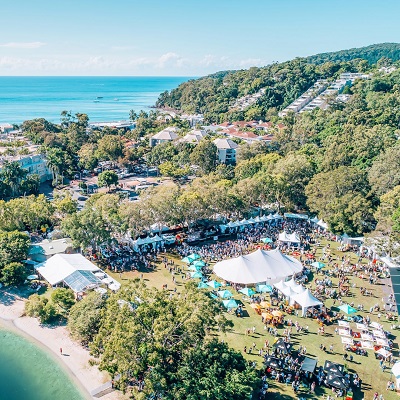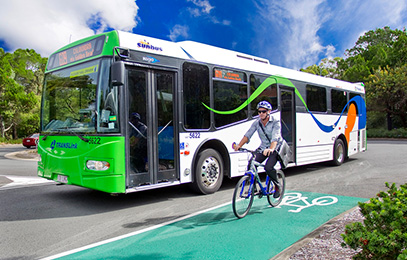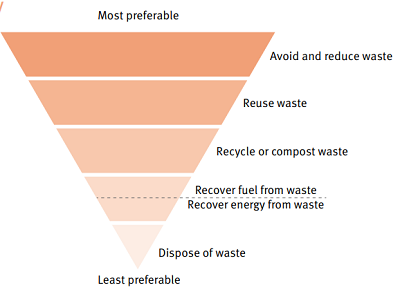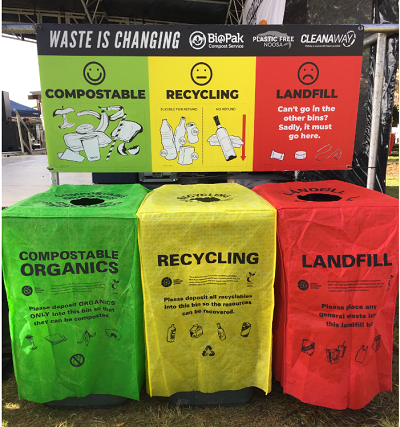Sustainable Event Guidelines
Bel ow are the sustainable event guidelines for holding an event in the Noosa Shire, these can be utilised in line with the full terms and conditions as per your temporary event permit. For further details email the property department.
ow are the sustainable event guidelines for holding an event in the Noosa Shire, these can be utilised in line with the full terms and conditions as per your temporary event permit. For further details email the property department.
Sustainable Event Planning & Communication
- When planning your event prepare a written Environmental Policy, which can be shared with suppliers, stallholders, speakers and patrons. Depending on the event, this may be as simple as a one-page document that says stallholders are required to use compostable/ biodegradable packaging, be plastic bag and water bottle free, and other initiatives.
- Refer to Council’s guidelines for waste management and sustainable transport.
- For indoor events, consider a venue with as much natural light and natural ventilation as possible.
- Use power generators that create the least pollution.
- Give patrons the option to offset their carbon, or have a net-zero-carbon event.
- Ensure water fixtures and amenities are low-flow and conserve water.
- Measure the amount of energy, water and waste your event is using, create a baseline so you can track your results each year and your environmental footprint.
- Partner with local environmental groups to improve to Noosa’s natural assets and environment, such as Landcare, Coastcare and the Surfrider Foundation. Include a donation to a local initiative in your ticket price and promote the benefits.
Promote your sustainability actions
- Let your attendees, stakeholders, stallholders and suppliers know about your sustainability goals in the lead up to your event and after afterwards.
- Electronic communication channels such as email, social media, radio and television are preferable to those involving printed media. Where paper is used, choose recycled material and recycle left over paper.
- Promote environmentally friendly actions you wish to encourage, such as active travel, reusable bags, public transport and waste minimisation.
- Promote the event with community groups that align with the environmentally friendly actions you wish to encourage, such as land care, river catchment and cycling groups.
- Research shows most event attendees are happy to pay a little more for a meal or drink served in environmentally friendly packaging - so substitute single-use plastics for greener alternatives and promote what you are doing with some simple signage at the point of sale.
Signage
- Standard corflute signage cannot be recycled as part of the recycling service.
- Lightweight and durable recyclable options are increasingly becoming available, ask your supplier for the best options for the environment.
- Minimise the use of materials by succinctly wording signs and consider placement to reduce the size and quantity required.
Transport and Travel
Sustain able transport options reduce traffic congestion, parking issues and vehicle emissions and provide an enjoyable experience for event attendees. Consider the transportation of attendees to and from the event, as well as transportation of goods and services before, during and after the event.
able transport options reduce traffic congestion, parking issues and vehicle emissions and provide an enjoyable experience for event attendees. Consider the transportation of attendees to and from the event, as well as transportation of goods and services before, during and after the event.
Depending on the size of an event, you may require an Event Traffic Management Plan.
Look at the following options to plan and improve your event’s transport options:
- Highlight accessible, active and public transport routes, providing details in your event invitation or ticket details.
- Include a page on your website on “Getting There” with electronic maps and locations of bike racks, paths.
- Encourage cycling or walking.
- Encourage event attendees to use Translink’s journey planner and include route and stop numbers in marketing material.
- Provide a shuttle bus between the closest transport hub and the event venue or location and promote Park n Ride options.
- Make the cost of shuttle buses free (included in ticket price) or cheap to provide incentive.
- Promote safe carpooling opportunities through a rideshare company, via an event forum that allows attendees to connect with each other or with incentives such as preferred parking or reduced parking costs for cars with two or more users.
- Provide locations for drop off, park and ride, taxi and booked-hire services.
- Provide bike racks or an area where people can store and lock their bikes.
- Consider limiting supply of car parking to manage and reduce car travel.
- Minimise vendors transport by using local products and services where possible.
- Choose local accommodation options within walking distance to the event.
- Depending on the size of an event, you may require an Event Traffic Management Plan.
Waste Management
Events have the potential to produce large amounts of waste, with more than 50% being recyclable. Minimising waste, single use plastics and the significant greenhouse emissions that result from landfill are key priorities for Noosa Council. Event organisers are encouraged to minimise impacts on the environment by reducing waste sent to landfill and diverting waste to recycling and composting.
Planning
Use this waste hierarchy to plan your waste management options from most preferable to least preferable:
Source: Qld Waste Avoidance and Resource Productivity Strategy (2014-2024)
Plan your events waste management by implementing general waste and recycling streams, avoiding single use plastics and encouraging stakeholders and event visitors to play their roles to reduce waste.
Communicate with stallholders and suppliers when planning your event to avoid:
- Disposable or single-use items such as polystyrene containers.
- Plastic pollutants such as plastic straws, single-use water bottles, plastic bags, disposable coffee cups and plastic cutlery.
- Balloons, which are highly mobile and can have a devastating effect on wildlife.
- Show bags or large amounts of promotional or printed material.
Use and advertise the use of recycled paper for all your printed material.
Waste types
Consider the types of waste your event will generate before you order bins. Choosing the correct bins for your event will increase recycling and reduce waste to landfill.
Provide recycling facilities on event days in as many forms as possible i.e. plastic, cardboard and food scraps.
Recycling services can be identified by a yellow lid and should be clearly signed at events. All recyclables must be placed loose in the bin, not in plastic bags, otherwise the bin load will be sent to landfill. The recycling stream includes:
- cardboard, glass jars and bottles, metal tins and cans (including aluminium cans)
- plastic bottles and containers
- paper (including unsoiled paper plates and napkins)
- recyclable packaging and serveware.
Paper and cardboard can be recycled through comingle recycling bins but if your event generates large amounts of paper and cardboard waste you can provide a dedicated paper and cardboard recycling service. This may reduce your waste management costs. Discuss this option with your waste service provider.
Waste Stations
 The right number and type of bins placed in the right places will encourage event attendees to dispose of waste correctly and can save contracting and cleaning costs. Tips include:
The right number and type of bins placed in the right places will encourage event attendees to dispose of waste correctly and can save contracting and cleaning costs. Tips include:
- Ensure waste and recycling bins are paired together to make a bin station (without bin stations recycling doesn’t work).
- Place bin stations at entry and exit points, food and beverage areas and high traffic areas.
- Ensure the bins are clearly sign-posted (signage and posters are available from Council)
- Ensure bin stations are provided for vendors and ‘back of house use’.
Estimate Your Waste Quantities
Approximately one waste station is required per 100 attendees, but may vary depending on the food service and other event waste.
Order bins at least four weeks prior and ensure the waste and recycling services match the types of waste expected to be generated.
Make a Waste Plan
Complete a waste plan and share it with your suppliers, stallholders, event staff and volunteers. Include information about:
- Items to be avoided such as plastic straws, single-use water bottles, plastic bags, disposable coffee cups and plastic cutlery.
- Recycling and general waste services.
- What items should go in each bin.
- Location of waste stations and skips for back-of-house use.
- Where spare empty bins will be kept.
- A roster and process for monitoring the correct use and replacement of bins.
- A plan for cleaning up litter.
- Post-event cleaning, storage and placement of bins for collection.
- Measure the amount of energy, water and waste your event is using, create a baseline so you can track your results each year and your environmental footprint.
Post Event Meeting
Discuss what worked and what could be done better next time. Incorporate any changes into future Waste Plan.
Partner Up!
Get in contact with Noosa’s local waste reduction heroes, such as:
Plastic Free Noosa Tourism Noosa Containers for Change

